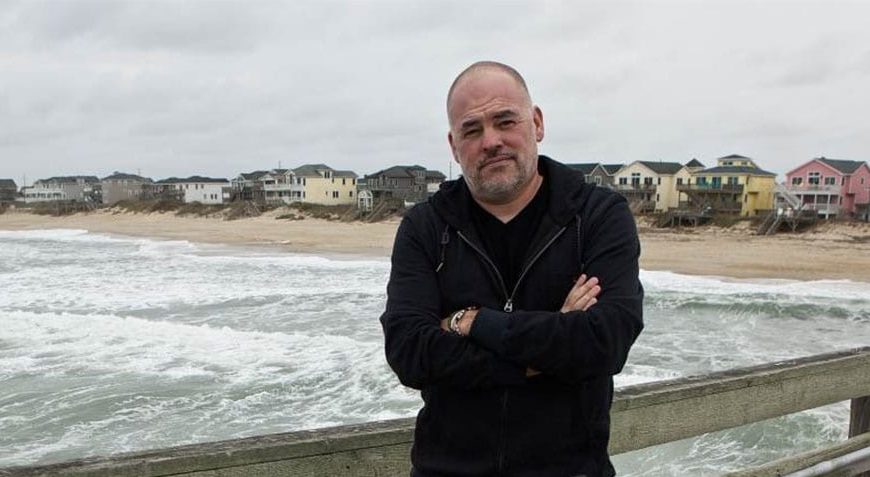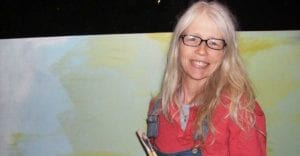
On May 25, 1895, the celebrated playwright and novelist Oscar Wilde entered Reading Gaol (as “jail” is spelled in British English) to serve two years’ hard labor for loving men instead of women.
Wilde had dared to sue the Marquess of Queensbury, father of his lover Lord Alfred Douglas, for libel after Queensbury had publicly accused him of being a “Somdomite.” The resulting trial produced evidence of Wilde’s other homosexual activity and two more trials, attended by massive publicity, resulted in his conviction on a charge of “gross indecency.”
More than a hundred and twenty years later I rode the Great Western Railway from London to the city of Reading to view a major exhibition on Wilde at the only recently shut down prison. The show celebrated the centenary of the posthumous publication of De Profundis, the very long letter Wilde wrote from his cell to Alfred Douglas. It had to be a letter because three pages a day of letter writing were all a sympathetic warden allowed the most talented man of letters in the country.

The tiny, wretched cells in the four-story Victorian prison are crammed with extraordinary installations by more than a score of notable artists and writers as well as letters and memorabilia of Wilde himself. And a reading of De Profundis has been scheduled every Sunday for the next six weeks in the prison chapel. The full letter takes five and half hours to read aloud.
I sat down with a big crowd on opening day to listen.
De Profundis is a love letter of a very particular sort, the sort we’ve all written at some time in our lives. And it is from this standpoint, the purely human one, I want to approach the work.
You wouldn’t know it was a love letter at first. “Dear Bosie [Douglas’s nickname],” Wilde begins. “After long and fruitless waiting I have determined to write to you myself, as much for your sake as for mine, as I would not like to think that I had passed through two long years of imprisonment without having received a single line from you, or any news or message even, except such as gave me pain.”
What follows is reproach upon reproach, accusations that Bosie’s profligacy and dissolute habits destroyed Wilde’s writing as well as his soul. There is no mention of happiness, only of the sorrow and pain brought on by the merciless behavior of a young lover who has shown only ingratitude for the innumerable kindnesses, monetary support, and unconditional love Oscar has showered on him.
By all this rage and pain we understand that Oscar is still deeply in love.
About twenty minutes in, however, I began to shift in my seat. Scolding myself for this restlessness, I listened on. The same content, the same martyred tone. You did this, you did that. How could you! The sole self criticism offered is that of having simply been too good to such a worthless scoundrel.
Unbidden, a voice rose inside me: Oscar, get over it.
I tried to suppress it. But couldn’t. And a short time later, with more than four hours to go on De Profundis, I crept out of the chapel and rode back to London, very unhappy with myself.
Oscar Wilde, if you’ve ever read the terrific biography by Richard Ellman, was a first-rate human being as well as a literary genius. He was just as kind and generous to people of all backgrounds as he describes himself being to Bosie in De Profundis. What he had to endure in Reading Gaol thanks to the vengeance of his lover’s father—six hours of treadmill per day and a plank bed for the first three months, no books till six months in, one visitor every eight months, not to mention a destroyed public reputation—was grotesque. And Alfred Douglas aka Bosie by all accounts was an unstable and immature young man capable of casual cruelty when he felt wronged.
But.
Oscar’s love was not as nobly one sided as he makes it sound in De Profundis; there’s a back story to Bosie’s silence. These two men loved each other. Once Wilde had served his sentence, they reconnected in Europe. After their first night together, Bosie offered to live with him forever. Oscar wrote, “My only hope of doing beautiful work in art is being with you.”
Naturally, it didn’t work out. They split and Oscar died alone in Paris three years after his release.
But they had loved each other. In real life every love story has at least two versions, maybe more. De Profundis is only one version of the story of Oscar and Bosie. It’s the only one we pay attention to because no one reads the fulsome sonnets of the inferior writer who was his lover.
Here’s the point I want to make: On the page we writers control our stories, real or made up. Our “way with words” gives us an unearned edge in presenting real-life situations. When a painter friend of mine underwent an acrimonious divorce, her soon-to-be ex, a writer, wordsmithed a scathing hatchet job that moved the judge to lecture her sternly, “Time to clean your skirts, Mrs. X!”
In Hilary Mantel’s historical novel Wolf Hall, the hero remarks sardonically that the self-aggrandizing cleric Sir Thomas More, about to be executed by Henry VIII, presents himself as “a poor victim” with “better words” than his adversaries possess. More did not deserve to die, but he made sure he controlled history’s perception of him–a perception that, thanks to his writerly gifts, may not have been fully accurate.
So, a question: How honest are we writers when we deliver our version of a real-life story in our memoirs and autobiographical fiction? Do we tell the hard truth about ourselves as well as the other guy? Or do we, every now and then, use our art to justify ourselves and settle scores–we poor victims with better words?







